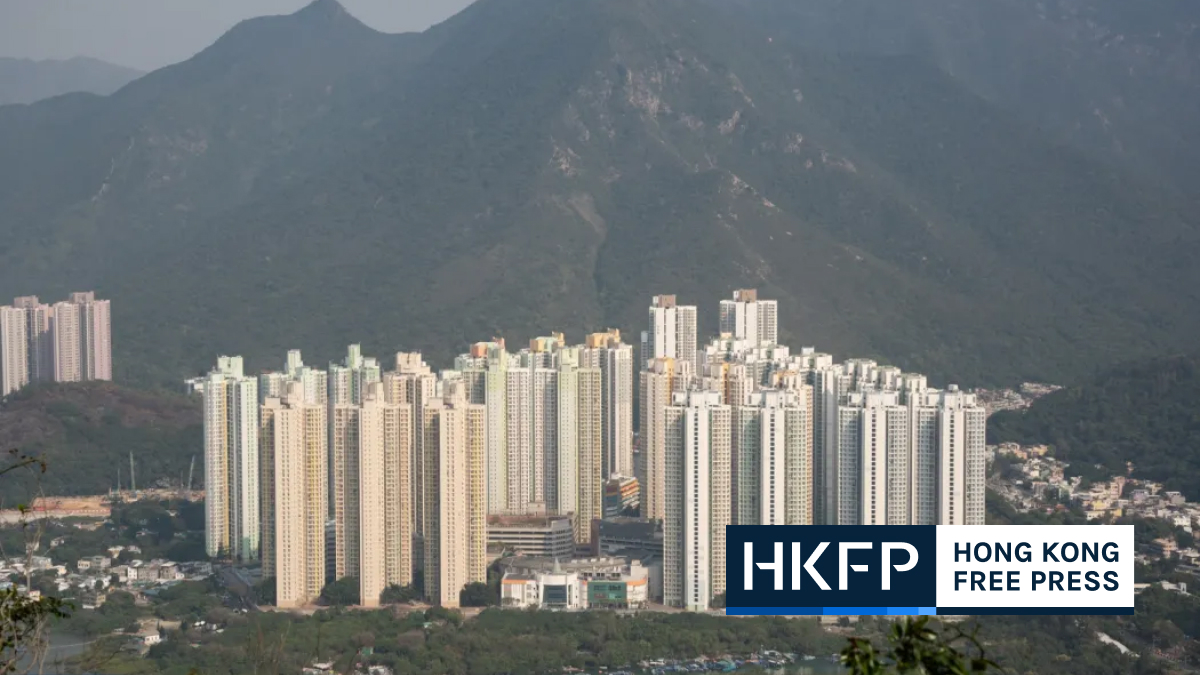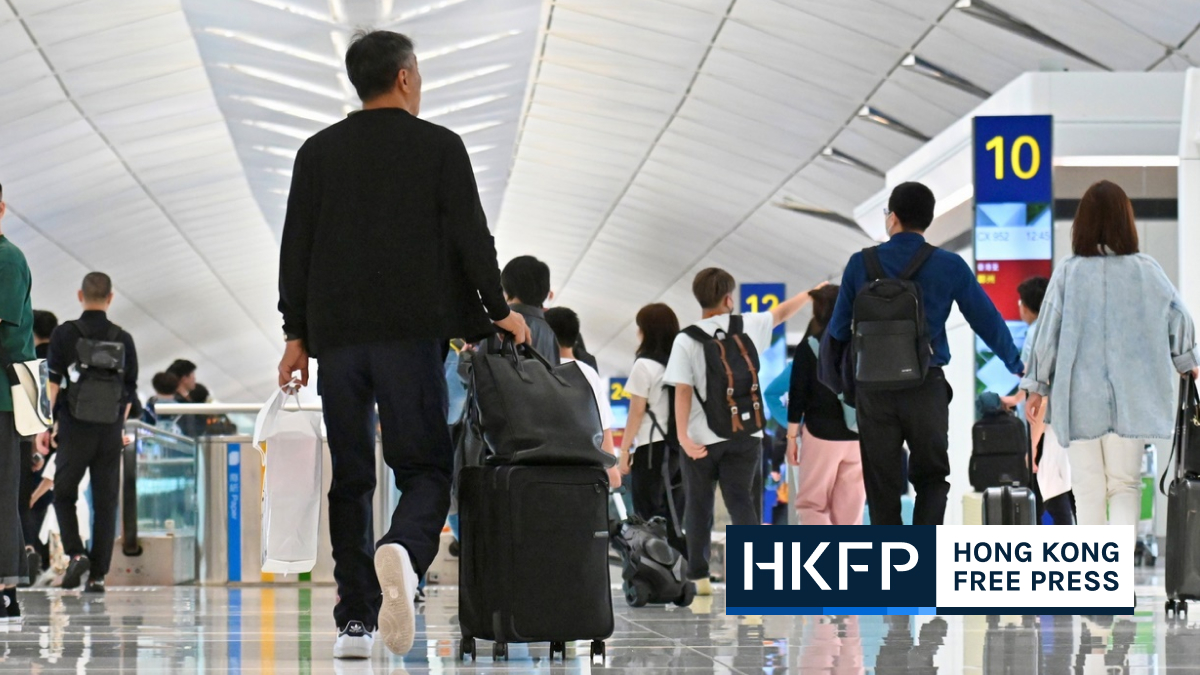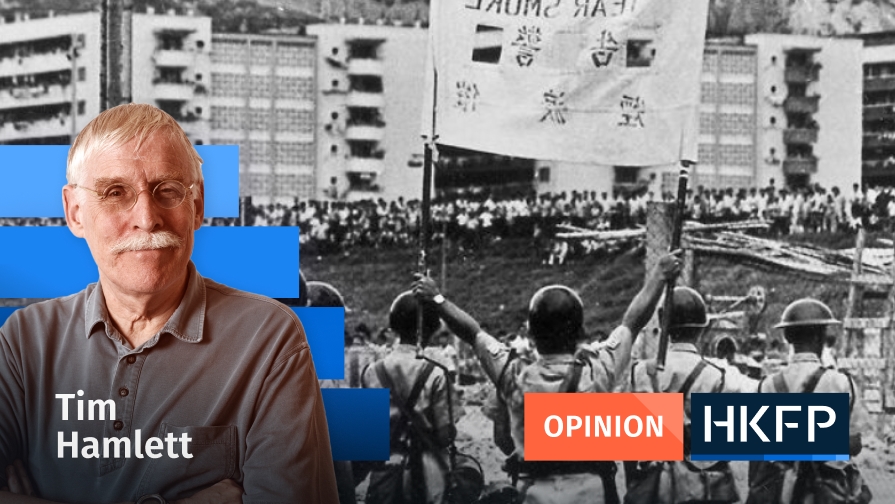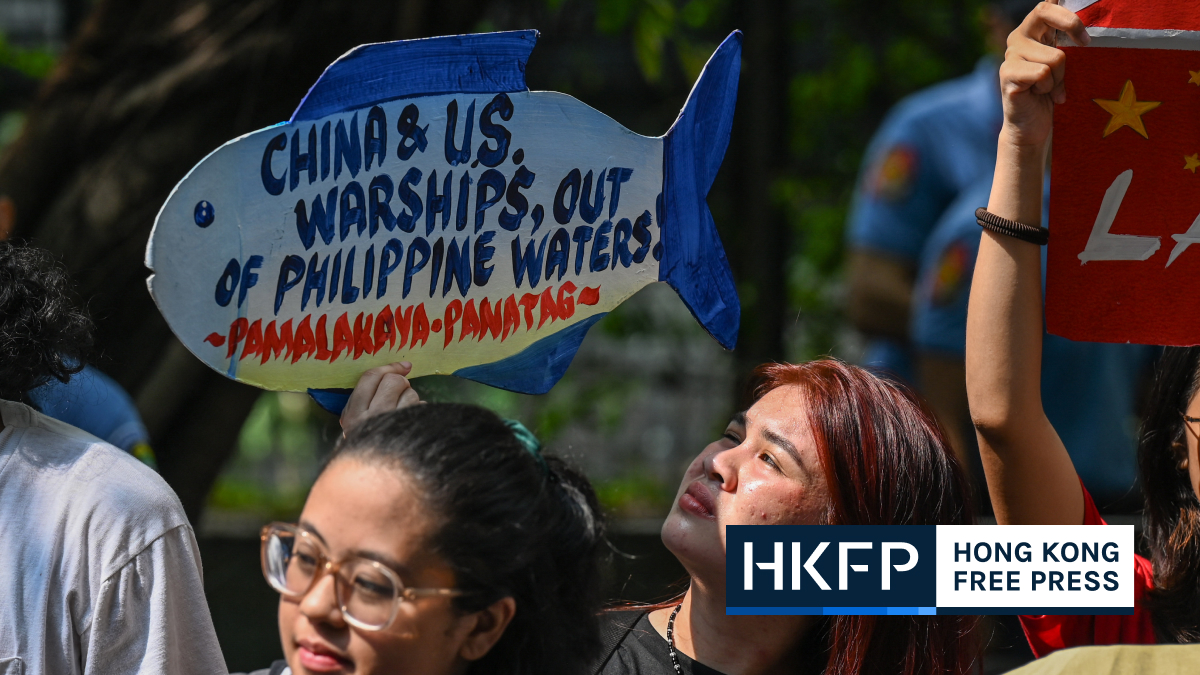A waste charging scheme first discussed two decades ago will be delayed, the Hong Kong government has said after a trial that saw limited adoption rates among residents.
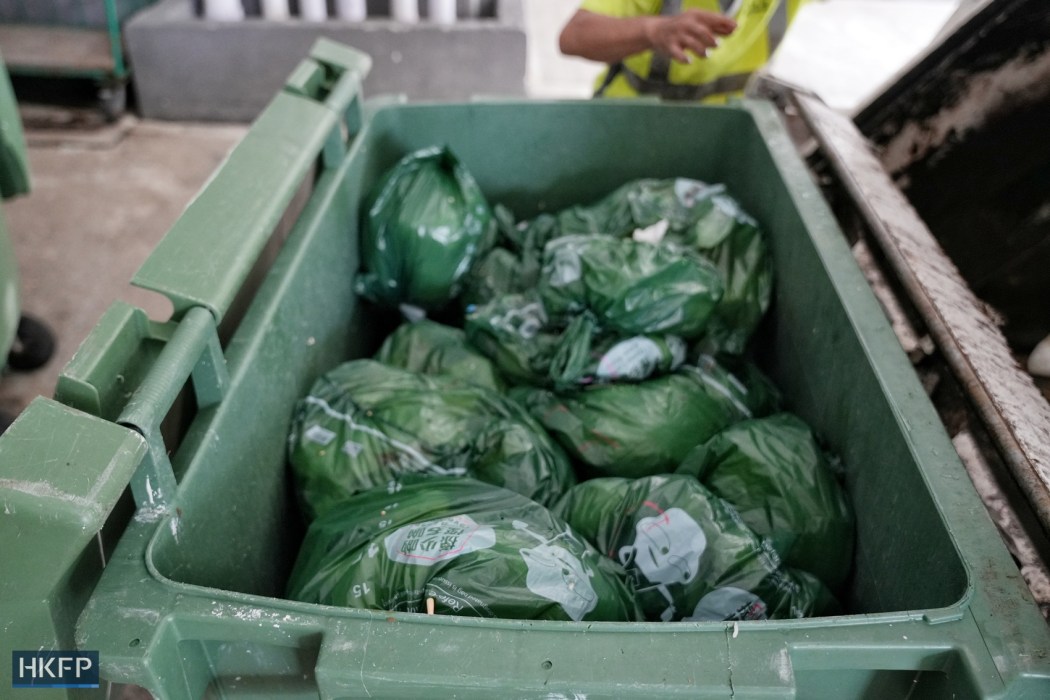
Deputy Chief Secretary Warner Cheuk on Monday told the the Legislative Council’s (LegCo) Panel on Environmental Affairs and Panel on Food Safety and Environmental Hygiene that the waste tax would not go ahead as planned this August. He did not provide an alternative date for the introduction of the scheme.
The Municipal Solid Waste Charging scheme, which was originally meant to take effect in April, will require residents to dispose of garbage using designated bags that they will have to purchase.
The policy was designed to reduce the amount of rubbish Hongkongers send to landfill. In 2022, the disposal rate of municipal solid waste in Hong Kong was 1.51 kilograms per person, per day, according to the Environmental Protection Department. Some 30 per cent of that was food waste, with the Hongkongers disposing of 0.31 kilograms of domestic food waste per day on average in 2022.
The move to further delay the implementation of the levy, which came from the Environment and Ecology Bureau, had been accepted by Chief Executive John Lee, Cheuk said.
The government, in the meantime, will step up public education and increase recycling facilities, Secretary for the Environment Tse Chin-wan, and will consult the legislature on the improvement measures in mid-2025, he added.
“The government’s original intention of promoting recycling and waste reduction remains unchanged,” Tse said. “Of course, we won’t stop. We will definitely press ahead with our work.”
Tse said the government would distribute 20 designated bags per month to households in public housing estates for the latter half of this year. He added that authorities aimed to increase the number of Green@Community recycling facilities from 200 to 800, and extend their operating hours.
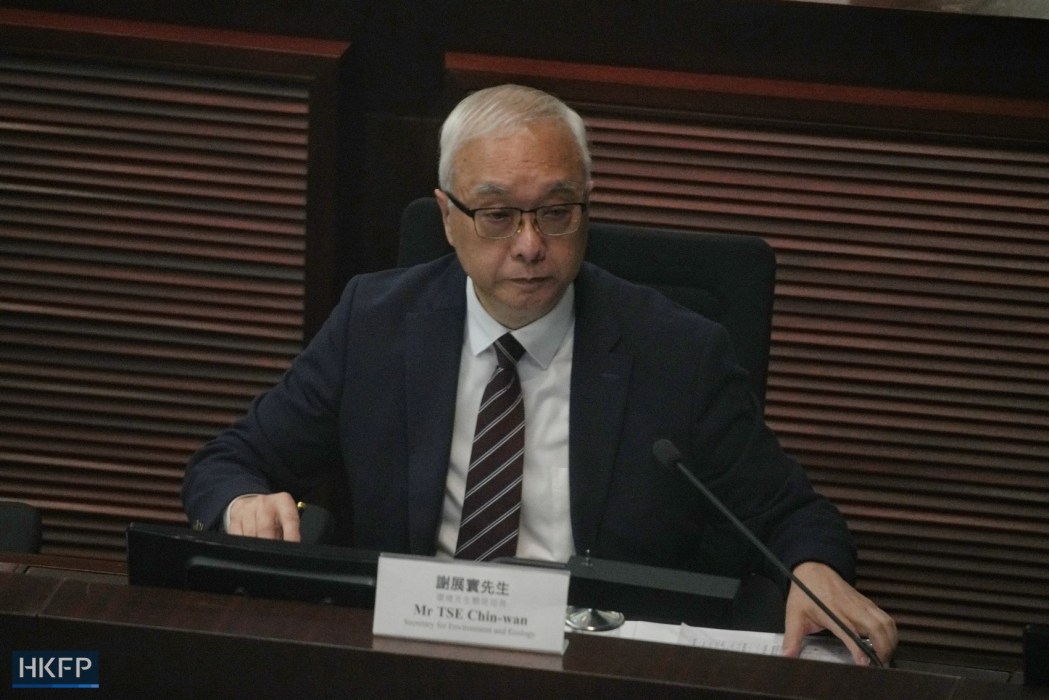
Addressing lawmaker Rebecca Chan’s concerns as to why the bags would only be distributed to residents of public housing estates, Tse said the government would also hand out bags to private estates as long as they signed a “waste reduction charter.” Food waste bins would also be installed at private housing estates, as well, he said.
Lawmaker Michael Tien, representing Roundtable, urged the government to require people to use the designated bags to dispose of domestic waste from January, with the bags being distributed for free for the first year.
He proposed allowing a grace period for the first 12 months, during which people who did not use the bags would not be prosecuted, though warnings would be issued. “That way, people will know the government has the ability to enforce the law,” Tien said.
Lawmaker Chan Siu-hung raised concerns over why the government would not lead the charge by first implementing the waste tax at government premises. The West Kowloon Government Offices, which took part in the trial, achieved full compliance with the scheme.
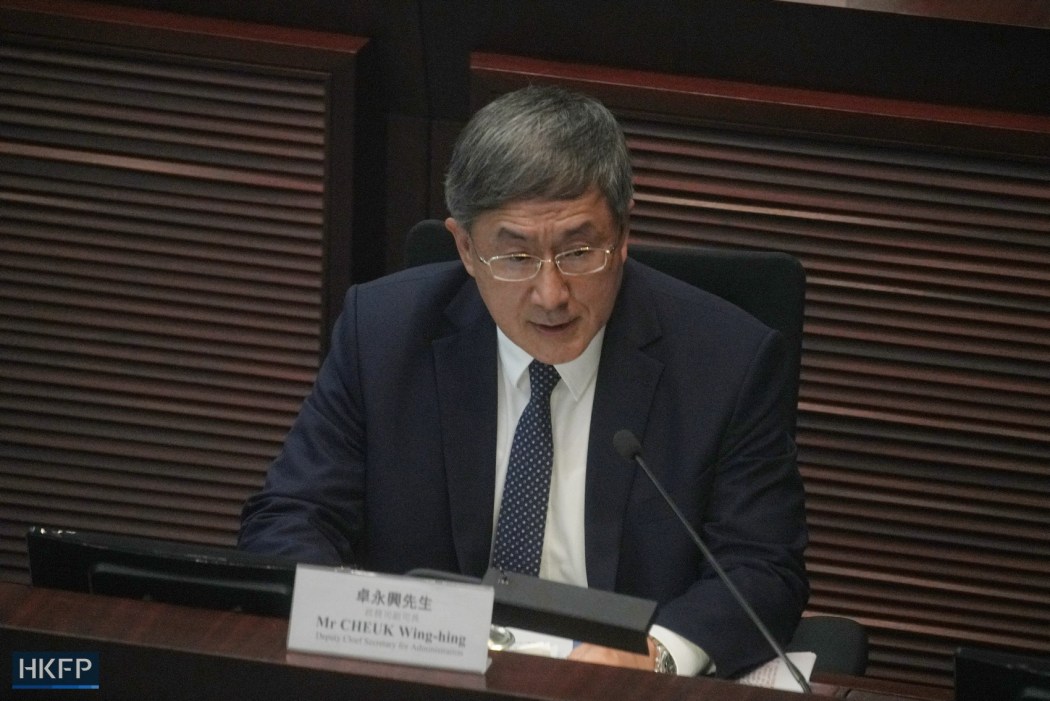
Asked whether the government would make a public apology, Cheuk told reporters outside the LegCo chamber that Tse had “done his best” and that the delay was the correct course of action.
“This delay was a pragmatic, correct decision, and it also demonstrated the principle of ‘governance for the people’. We support the secretary’s recommendation,” Cheuk said.
“We have to face the unwelcome reality that our society is not prepared. The understanding and recognition of the waste charging scheme and our recycling culture are all lacking,” he added.
‘Public disturbance’
In an official document submitted to the legislature last week, the government said members of the public who took part in a trial run of the scheme found it to be a “public disturbance.” Some residents thought the waste levy was a hassle and the designated rubbish bags were overpriced, the paper said.
While use of the designated bags was limited, especially at public housing estates and “three nil” apartment blocks with no property management, uptake stood around 70 per cent at shopping malls, and government premises under the trial had generally reached full compliance.
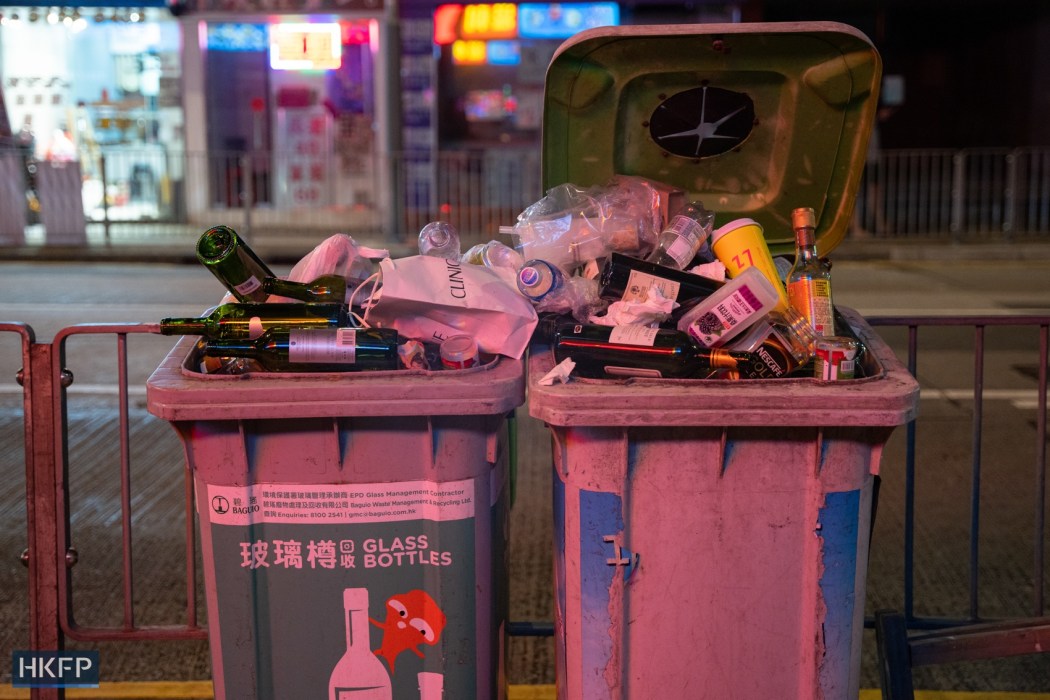
Sanitation workers, meanwhile, reported that their workload doubled over the course of the trial, and had considered quitting their jobs over complications caused by the tax.
The waste tax, described by the government as “the centre of our overall waste reduction strategy,” was proposed by the authorities in 2005. The scheme was signed into law in August 2021 following several consultations and trials.
First step
Seven green groups on Sunday published an open letter to Chief Executive John Lee reiterating earlier calls for the levy to be implemented according to schedule this August, starting with government premises but excluding public housing estates.
“The government should take the opportunity on August 1 to take the first step. If the waste tax cannot be fully implemented, it can still be rolled out in phases,” the letter read.
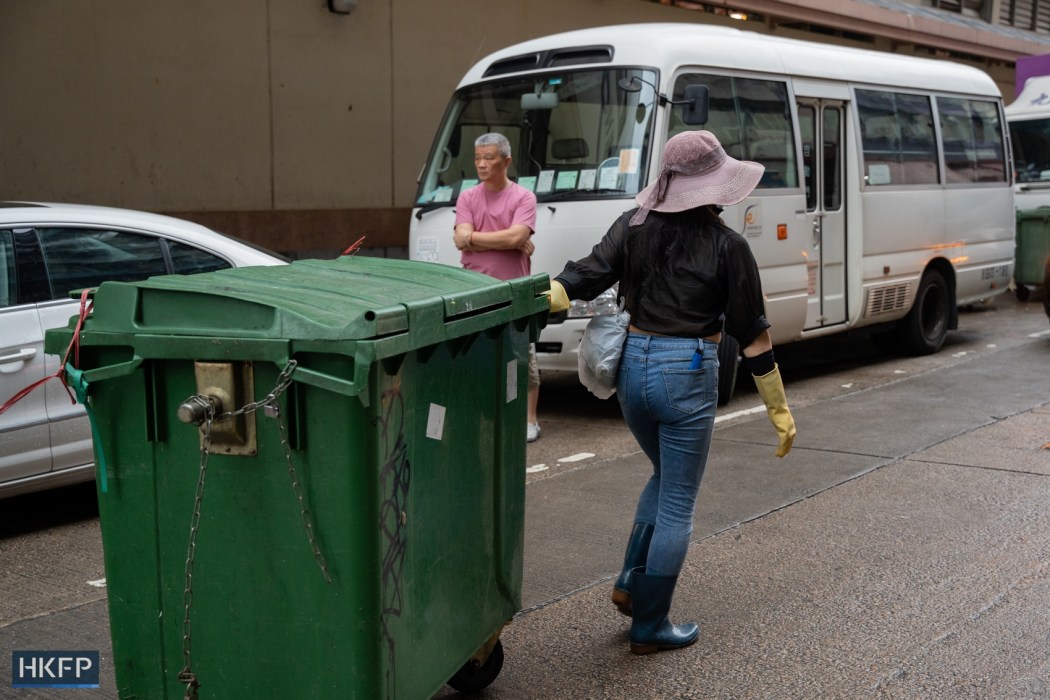
“We believe this crisis will turn into an opportunity and demonstrate [the government’s] determination to reduce waste and protect the environment,” they said.
The Green Earth, Greenpeace, Friends of the Earth, Green Power, and Greeners Action, along with sustainability think tank Civic Exchange and the ADM Capital Foundation, also advised against blaming or punishing residents, and to instead focus on offering practical solutions to reduce waste.
They also urged authorities to improve the working conditions of the city’s sanitation workers.
Support HKFP | Policies & Ethics | Error/typo? | Contact Us | Newsletter | Transparency & Annual Report | Apps
Help safeguard press freedom & keep HKFP free for all readers by supporting our team

LATEST FROM HKFP
HKFP has an impartial stance, transparent funding, and balanced coverage guided by an Ethics Code and Corrections Policy.
Support press freedom & help us surpass 1,000 monthly Patrons: 100% independent, governed by an ethics code & not-for-profit.






